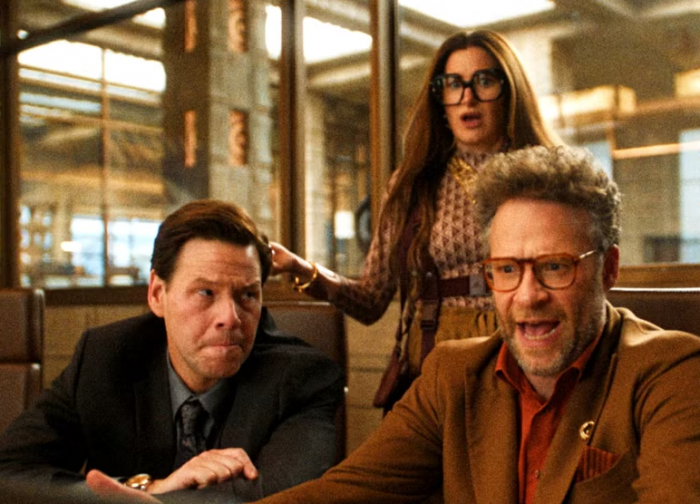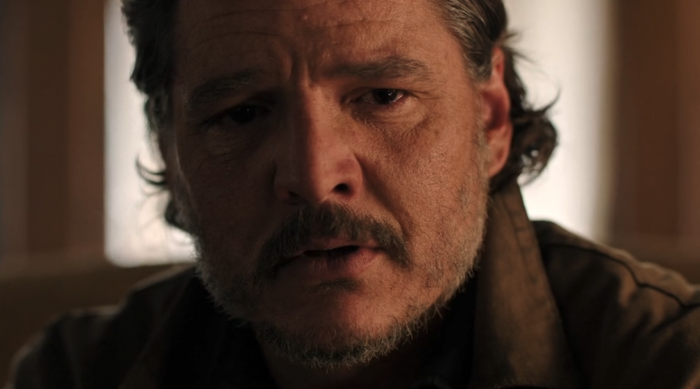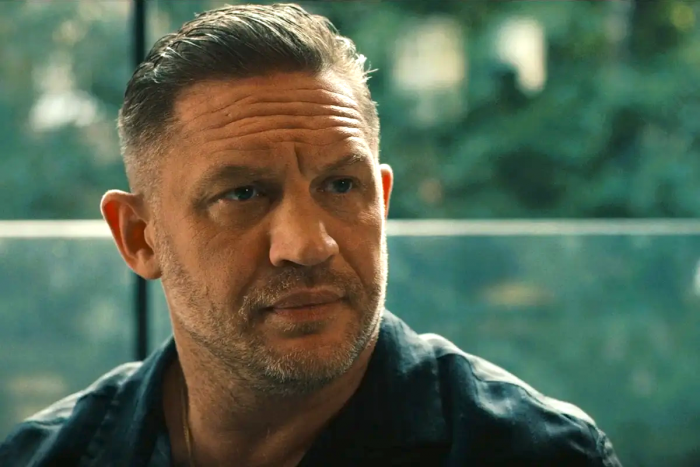
Cliffhangers Under the Binge Model Are Frustrating, Pointless, and Outdated
By Dustin Rowles | TV | June 14, 2023

In May 1997, during the season finale of Friends, Ross was supposed to marry Emily but, while delivering his vows, he accidentally referred to his bride-to-be as Rachel, his ex-girlfriend. As Emily contemplated whether to proceed with the wedding, the camera quickly captured a shocked Rachel. The credits rolled, leaving 20 million households gasping in horror, as they had to endure almost four long months of anticipation to discover how the situation would resolve.
Waiting for four months was hard, but imagine waiting six months after the “Who Shot JR?” episode of Dallas aired before the answer was revealed, or the nearly eight months (due to the writers’ strike) that viewers had to endure to find out what happened on Lost after Jack exclaimed, “We have to go back.”
Sucks, right? But it’s nothing compared to the two years we had to wait between seasons one and two of Sweet Tooth, despite how unnecessary it was to end the first season on a cliffhanger when the series already had us hooked.
Old-school cliffhangers served a purpose beyond simply shocking viewers. They successfully maintained the audience’s interest, ensuring they returned the following week or, more frequently, the next season before we could witness the resolution of major questions. The effectiveness of these cliffhangers relied on their indelible nature, as well as the relatively short time span between seasons, preventing viewers from forgetting how the previous season concluded. Furthermore, cliffhangers exerted pressure on network executives, dissuading them from canceling a series and risking the wrath of viewers who were left hanging. For instance, even after a decade, I still harbor resentment toward TNT for canceling Southland without revealing whether John (Michael Cudlitz) survived or not.
However, cliffhangers have become less useful and more frustrating in the era of binge-watching and streaming. They now serve little purpose. Consider Netflix’s The Diplomat, released in April of this year. Without giving away any spoilers, I will concede that it concluded with one of the most shocking and impactful cliffhangers in recent memory. But due to the binge-watching nature of consuming 8-10 episodes over a weekend, that cliffhanger is practically the only thing I recall from the series. Less than two months later, I can barely recall the surrounding circumstances. When The Diplomat eventually returns, likely in late 2024, will I remember anything about it except for a vague sense of liking it?
The issue goes beyond the length of time between seasons. I can’t say how many Netflix series I’ve only watched because the episode-ending cliffhangers compelled me to continue from one episode to the next. In fact, we have become conditioned to expect cliffhangers at the end of every episode. It is less frustrating when we can simply press the “Next” button and move on to the subsequent episodes. However, if every episode ends with a cliffhanger, and every season concludes with one as well, when will we finally experience the satisfaction of resolution?
Just last week, Peacock released Based on a True Story, a moderately amusing dramedy about a married couple — portrayed by Kaley Cuoco and Chris Messina — who conspire with an active serial killer (Tom Bateman) to produce a true-crime podcast about his murders. It’s an easy binge; in fact, I watched it all in an afternoon. The series showcases another remarkable performance from Cuoco, who, with the right script, I am convinced could single-handedly re-revive the romantic comedy. The performances are consistently strong, and it offers occasional humor. However, it’s burdened by unnecessary dream-sequence fake-outs and completely loses touch with reality by the sixth episode out of eight.
As off the rails as it is by the sixth episode, I had no reservations about finishing the last couple of episodes to see how the series concluded … except it didn’t. I can tolerate a certain type of cliffhanger in binge-model series, where the season wraps up but teases a new mystery or development for the next season. This was not the case with Based on a True Story. It resolves nothing; instead, it introduces further complications. It is nearly as frustrating as the first season finale of AMC’s The Killing, which was so exasperating that it eroded all the goodwill the series had built throughout its debut season, and it never truly recovered.
So, what is the purpose of leaving us utterly unsatisfied if the series will not return for at least another year, assuming it returns at all? After all, a frustrating cliffhanger offers no guarantee of renewal. Consider 1899, a show canceled earlier this year just as it was starting to become intriguing.
Cliffhangers do not guarantee the renewal of a series. Furthermore, I would venture to say, although I lack evidence to support this thesis, that cliffhangers do not necessarily attract additional viewers. In fact, they may have the opposite effect. Personally, I am more inclined to watch another season not solely because I seek answers but because I genuinely enjoyed the previous season. I am far more likely to appreciate the previous season if it provides some resolution and leaves me satisfied. I have no idea how they will approach a second season of Squid Game, but I will watch it not because I crave answers (the first season did not end with a cliffhanger) but because the first season was exceptional, and I trust that the second season will be as well.
If a show is good, it does not need to manipulate me into returning. Conversely, if a show is lousy, no matter how shocking the cliffhanger may be, I will not come back. Cliffhangers should be used sparingly (and avoided after the first season), and if they are absolutely necessary because the narrative’s scope extends beyond a single season, they should at least make the cliffhangers fun (see, e.g., a particular blockbuster currently showing in theaters).



